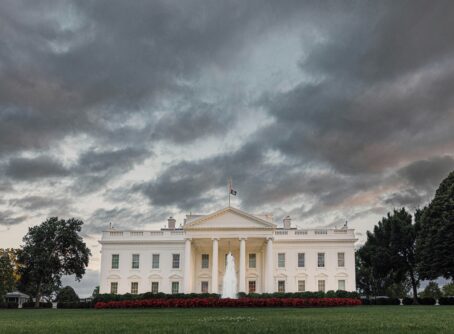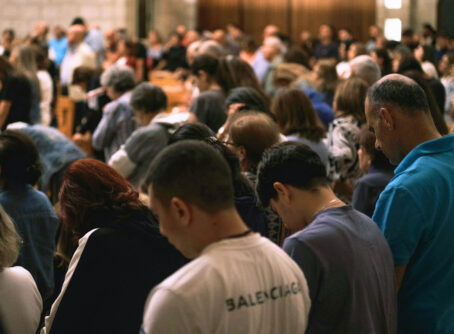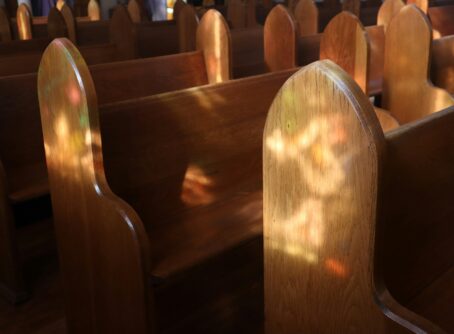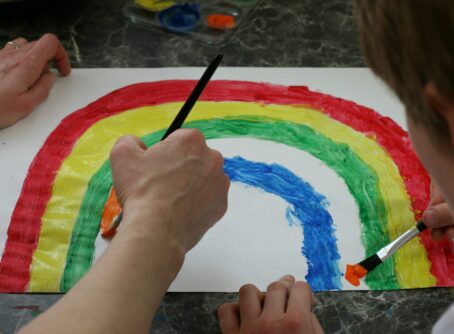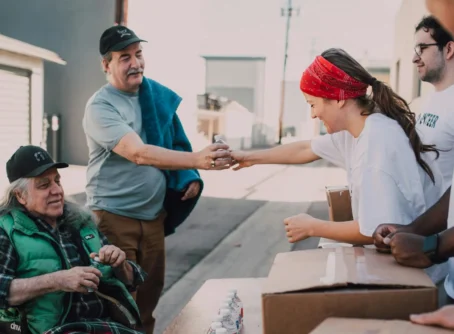
This article is part of the Religious Freedom Reframed series, which is exploring perspectives on religious freedom that have historically been left out of public discourse, as well as implications for individuals, institutions, and society overall. In this series, authors will use a public justice framework to explore narratives that are traditionally left out of the conversation on religious freedom. This series is designed to introduce fresh perspectives, feature new voices, and examine historical and present injustices in the application of religious freedom. The Center for Public Justice, a Christian faith-based organization with a strong commitment to religious freedom, has intentionally invited authors from diverse faith traditions and perspectives on religious freedom to share their insights and experiences of religious freedom in the United States.
Editor’s note: This article was adopted from an excerpt of a chapter called Religious Literacy and Social Services, coauthored by Stanley Carlson-Thies and Chelsea Langston Bombino, from the the book The Routledge Handbook of Religious Literacy, Pluralism, and Global Engagement. Edits in this article were made for brevity, clarity, and context.
BY CHELSEA LANGSTON BOMBINO AND DR. STANLEY CARLSON-THIES
What does it look like to advance a both/and perspective of religious freedom? Is it possible to advocate for both the religious freedom and the religious responsibility of faith-based organizations operating in the public sphere in the United States? We believe the answer is yes. That is why we advocate for the freedom of varied faith-based organizations—different in religion and in areas of service—to have the religious freedom they need to be free to serve.
In this article, we will engage the strengths, opportunities, and challenges of cross-cultural religious literacy (CCRL) in the field of human services in the United States, with a focus on faith-based social services organizations. CCRL is the way to achieve the common good for which covenantal pluralism calls. The common good encompasses the flourishing of distinct and varied individuals and organizations within a society, due to their engagement of each other and the resulting service to all. This kind of pluralism must be continuously pursued by diverse individuals and by the organizations in and through which they live their lives. The common good is not uniform, but rather incorporates and respects the good—the distinctive commitments and insights—of the various religions, diverse peoples, and different organizations in the society.
APPLYING CROSS CULTURAL RELIGIOUS LITERACY TO ORGANIZATIONAL LIFE
In our work, we advocate for public policies that enable faith-based and secular organizations simultaneously to live out their distinct identities and values and contribute to the common good. We also help faith-based organizations (FBOs) become engaged in mission-true organizational principles and practices. And we equip faith-based organizations, including many human services providers, to engage in positive public positioning—shaping public understanding of how distinctive organizations contribute positively to their communities. We refer to these aspects of organizational life as the “Three Ps.” We suggest in this article a way in which human services providers can “institutionalize” CCRL competencies. We believe that the CCRL competencies can be brought to life and holistically integrated into every area of a human services provider’s organizational life:
(1) Public Policy: Faith-based and values-based human services organizations need to develop an understanding of how the public policy context in which they operate impacts their freedom to serve distinctively and how it impacts those they are serving. Human services organizations need to understand the animating values of other organizations and to be able, despite differences, to form strong coalitions in pursuit of policy that promotes the kind of pluralism described above.
(2) Organizational Practices: An organization needs to have reshaped its practices according to CCRL in order to understand itself, to understand the distinctiveness of those who come to it and the organizations with which it should collaborate, and to be able to serve and partner across these differences to advance the common good.
(3) Public Positioning: Distinctive human services organizations need to cultivate in the public an understanding of the connection between their religious/ethical frameworks and their positive community impact. By doing so, an organization will be helping to develop the supportive environment it needs in order to be able to operate and serve in a distinctive way, even as it partners with diverse individuals and institutions.
This article will focus on faith-based social providers in the United States, yet the principles outlined here surely apply to all human services organizations. Every organization has its own animating ecosystem of values—whether explicitly faith-based or not—that shapes its team members, policies, practices, culture, and services.
BEYOND FORMALISM – THE INTERSECTION OF RACE AND RELIGIOUS FREEDOM IN FAITH-BASED AND GOVERNMENT PARTNERSHIPS
In 2017, the federal Department of Health and Human Services issued a Request for Information about whether changes needed to be made to its Equal Treatment regulations and practices -HHS-9928-RFI 2017. IRFA submitted a Comment for itself proposing several regulatory refinements. And, building on previous discussions, we facilitated submission of a quite different comment by a dozen African American Christian and Muslim congregational and ministry leaders from Prince Georges County, Maryland. Their houses of worship and faith-based nonprofits offered a wide range of social services programs, including returning citizen programs, housing programs, services for domestic violence survivors, marriage strengthening programs, HIV/AIDS programs, professional skills/interview preparation trainings, urban gardens, food assistance programs, health clinics, child-care, social enterprise programs, and more. The leaders testified that their organizations “have long provided contextually appropriate services to diverse communities out of a deeply and explicitly religious calling to love their neighbors as themselves.” They were providing essential services to marginalized communities, and yet, they said, they had “historically faced barriers, and face barriers [still] today, in participating in HHS programs and receiving government funding, [experiencing a feeling of] exclusion from every aspect of the process of forming both financial and nonfinancial partnerships with government.”.
“The common good is not uniform, but rather incorporates and respects the good of the various religions, diverse peoples, and different organizations in the society.
The subsequent comment included the group’s recommendation that HHS must address the problems of selection bias in favor of previous grantees and larger organizations in the HHS system of determining organizations that receive federal funding for the provision of services. One Black Muslim leader stated, “I know the reality of the situation for Muslim organizations because we have been excluded from government partnerships for years. How do we make the selection process fair? Those groups who are worthy and who best know the community should be selected.”
The leader of a social outreach ministry associated with a Black church succinctly summarized a part of the needed solution: “The government must break down the funding to a smaller, more community level. The funding always goes to the larger organizations. This federal review process favors a lot of better positioned organizations that write great proposals, but when you get to the nitty gritty of it, they are not even in the community.” (Langston Bombino 2017a) The leaders’ emphasis that their organizations maintain an explicitly religious mission and identity while serving everyone in need shows that they are implementing key principles of the Equal Treatment rules of the federal faith-based initiative. Their organizations were keenly interested in receiving federal support for the essential services they struggled to provide. The formal Equal Treatment rules enable them to compete for support, but barriers of size, marginalization, bureaucratic routine, and selection bias in fact precluded their equitable participation. It remains to be seen whether this Comment and other advocacy to HHS about non-legal barriers will result in meaningful change; what is clear is that it will take continued collaboration across differences, inspired by a common purpose and made possible by CCRL practices, to pursue such vital reforms.
CONCLUSION
“The Bible says God took the blood of one man and made all men, so I tried to look around me to see who’s in our communities and what they needed. Regardless of color of skin, regardless of people’s religious perspectives, or whatever their perspectives are, period, we wanted to serve them.” – Pastor Harold Dugger
Pastor Harold Dugger, a leader of a historically Black church with various social outreach ministries and a participant and educator with Sacred Sector, spoke these words at a recent event on faith-based social services organizations in the Covid-19 crisis. His words bring to life the three competencies of CCRL, not just as a way of changing minds, but as a way of bringing about change through action.
This article has focused on faith-based social services, yet the concepts discussed apply to all human services organizations. Every organization needs to integrate CCRL practices holistically into the fabric of its organizational life in order to make possible covenantal pluralism. Covenantal pluralism cannot be realized only through individual action and interpersonal collaboration. Covenantal pluralism requires institutions as well as individuals not only to shape their own practices but also to cultivate public policies and public attitudes that support covenantal pluralism. Relationships built on love of our civic neighbors across differences can birth and bind partnerships where we learn more about ourselves, more about our religious others, and more about how to work together toward common objectives. This chapter’s focus on distinctive human services providers fully embodying CCRL has necessarily required a focus on institutional religious freedom.
Religious freedom is a prerequisite for living out CCRL competencies and skills pursuant to a vision of covenantal pluralism. For social services providers and professionals, religious freedom ought to be reimagined to go beyond understanding and protecting one’s own ability to seek the sacred in everything, to encompassing the freedom of diverse clients and organizations with their own distinct religious/ ethical beliefs to fully practice them, unhindered by legal or cultural barriers. In this way, CCRL enables social services providers to practice a kind of public, institutional love of our different civic neighbors, through our individual and organizational practices, through public policy, and through our public witness.
Chelsea Langston Bombino is a believer in sacred communities, a wife, and a mother. She serves as a program officer with the Fetzer Institute and a fellow with the Center for Public Justice.
Stanley Carlson-Thies is the founder and senior director of the Institutional Religious Freedom Alliance (IRFA), a division of the Center for Public Justice. Carlson-Thies is also a senior fellow at the Canadian think tank Cardus. From 2009-2010 he served on a task force of President Obama’s Advisory Council on Faith-Based and Neighborhood Partnerships and he also served with the White House Office of Faith-Based and Community Initiatives from its inception in February 2001 until mid-May 2002 under President George W. Bush.
READ MORE FROM THIS SERIES
Introducing Religious Freedom Reframed by Joshua Seiersen and Chelsea Langston Bombino
The Paradox of the Black Church and Religious Freedom by Jacqueline C. Rivers, Ph.D.
Religious Freedom Reframed: A Conversation with the Next Generation by Minister Kerwin Webb
Correcting Blindness in the Religious Freedom Landscape by Joshua Seiersen
Religious Freedom to End Human Trafficking by Rev. Dr. Denise Strothers
The Nation’s Mosque: Embodying Love Across Difference by Imam Talib Shareef, Brother Albert, Ismail Royer, and Chelsea Langston Bombino
American Identity Reframed by Amar D. Peterman
The Birth of an Islamic Spiritual Movement for Women’s Rights: An Interview with Daisy Khan by Daisy Khan and Chelsea Langston Bombino
Midwifing Religious Freedom, Pluralism, and New Spiritual Communities for Civic Action by Daisy Khan and Chelsea Langston Bombino
WANT TO GET INVOLVED?
1. Sign up to receive Shared Justice’s monthly newsletter and stay up to date on the latest content, resources, and highlights.
2. Write for us! Email sjsubmissions@cpjustice.org for more information.
3. Form a Political Discipleship group and advocate for religious freedom in your community. The Center for Public Justice’s Political Discipleship is a guide for active Christian citizenship, designed to empower people with skills and tools to shape policy and address inequality and injustice in their communities. To learn more about starting a group, visit our website or contact katie.thompson@cpjustice.org

